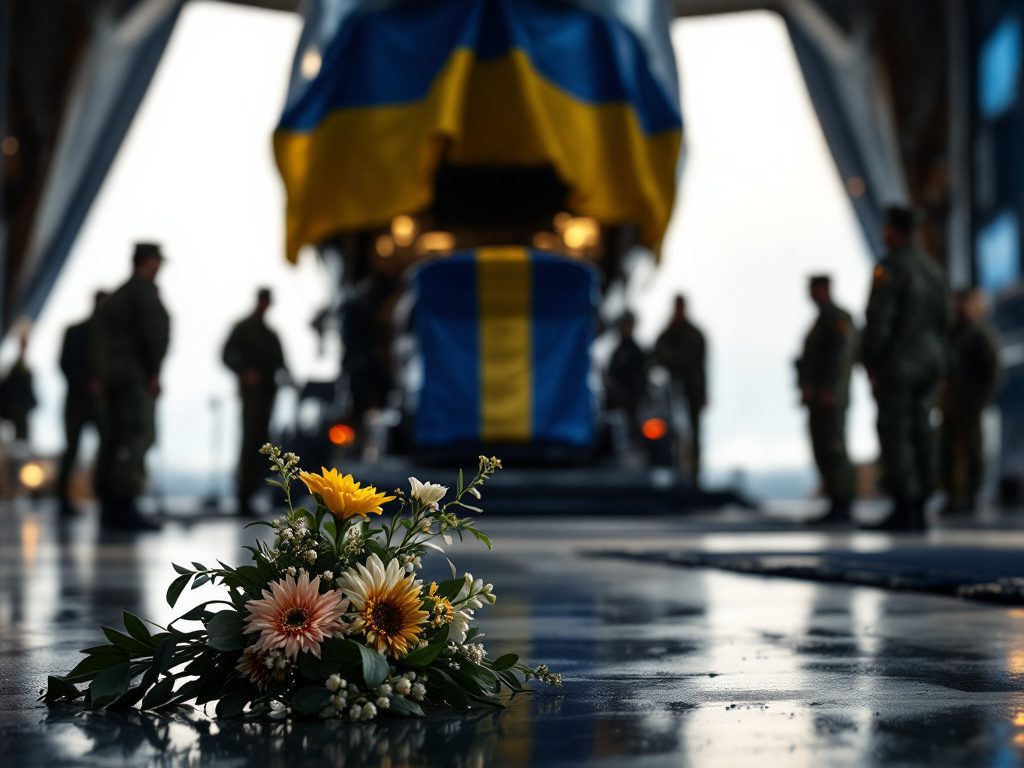The Price of Telling the Truth: Roshchyna’s Fatal Assignment
On a bleak afternoon in late February 2024, Ukrainian authorities received the body of Viktoriia Roshchyna, a 27-year-old journalist whose commitment to truth-telling cost her everything. Having vanished in August 2023 while reporting in the Russian-occupied city of Enerhodar, Zaporizhzhia, Roshchyna became another name on a haunting roll call of civilians and journalists disappeared by Kremlin forces. What distinguished her case—beyond the youth and promise she embodied—was the relentless brutality she endured after being captured.
According to accounts from former detainees and corroborated by Yaroslav Yurchyshyn, Chairman of the Verkhovna Rada Committee on Freedom of Speech, Roshchyna was held in infamous detention centers—Melitopol, Taganrog, and beyond. In Melitopol, a fellow detainee described how she was tortured, her health shattered so completely that by her final days she weighed just 30 kilograms and needed help to stand. Even under these conditions, Roshchyna’s status as a journalist seemed less a shield than an invitation for torment—a bitter irony in a war defined by disinformation and narrative warfare.
This tragedy isn’t just a local news story. It illustrates how Russia’s campaign against Ukrainian identity now targets not just soldiers and activists but those who bear witness. The chilling normalcy of torture, the forced confessions, the state-sanctioned erasure: for those living close to the violence, these are not headlines but lived reality.
“Freedom of the press is not just a principle—it is the oxygen democracy breathes. With every journalist imprisoned or killed, the world gasps.”
Truth Under Siege: Why Journalists Are Being Targeted
A closer look reveals how Russia’s treatment of journalists like Roshchyna is part of a broader, dangerous pattern—one striking fear into anyone who dares to shine a light on wartime atrocities. Her story resonates with disturbing similarities to cases in Chechnya, Syria, and occupied Crimea, where reporters have systematically been silenced through intimidation, abduction, and murder.
The use of torture, according to testimony and investigative reporting, is not simply punitive but calculated. By breaking reporters and then manipulating their public confessions—as when Roshchyna was coerced into videotaped statements claiming Russian forces saved her—Moscow crafts narratives conducive to its war objectives. Harvard historian Serhii Plokhy notes that this tactic “weaponizes the very idea of truth, making information itself suspect in the eyes of international observers.”
It’s no coincidence, then, that Russia’s military strategy blurs the line between battlefield and homefront, target and bystander. Journalists pursuing independent reporting, especially women like Roshchyna, have become symbolic threats: documenting evidence of war crimes, tracing the fates of the missing, and giving voice to the silenced. Their elimination serves two objectives: removing witnesses and intimidating future would-be chroniclers of the conflict.
Beyond that, Kyiv-based press advocates have documented more than 50 cases of Ukrainian journalists subjected to abduction or extrajudicial detention since Russia’s 2022 full-scale invasion. According to Reporters Without Borders, Ukraine is now the world’s second-deadliest country for journalists, trailing only Mexico. Such statistics demand a deeper reckoning: what does it mean for democracy, and for the global information order, when truth is hunted down with impunity?
Justice Delayed: The Fight for Accountability and the Cost of Inaction
The arrival of Roshchyna’s remains was not the end of her ordeal, but the start of another agonizing chapter. Her family was forced to insist on multiple DNA tests to confirm her identity amid credible fears that Russian authorities would swap bodies as a macabre way to obscure culpability. This delay, paired with Russia’s slow and often opaque communication, reflected a disturbing pattern noted by Ukrainian officials—one where even in death, the dignity of prisoners is a bargaining chip.
International law is unequivocal that the targeting of journalists constitutes a war crime, yet prosecutions are rare, justice glacial. United Nations investigators have cited credible evidence that abuse of Ukrainian civilians and journalists in Russian custody frequently meets the threshold for torture and extrajudicial killing. Still, as Human Rights Watch’s Yulia Gorbunova emphasized in a July 2023 interview: “Accountability hinges not just on documentation, but on sustained international pressure, meaningful sanctions, and unwavering solidarity with victims.”
We are left, then, not only to grieve Roshchyna but to honor her by demanding more. Every incremental advance—each document gathered, every name remembered, every official called to account—pushes back against the silence that authoritarian regimes crave. The global community, especially democratic nations, must do more than issue statements of concern. Real pressure—legal, economic, diplomatic—remains the most meaningful tribute we can pay to those who have risked everything for the possibility of truth.
At its core, this is not only a Ukrainian tragedy, but a warning shot for any society that values a free and open press. If we allow the deliberate targeting of journalists to proceed unchecked, today’s tragedy will become tomorrow’s routine—abroad and at home. Our vigilance, and our advocacy, must match the courage of those like Viktoriia Roshchyna, whose reporting outlasted even her captors’ attempts at erasure.

